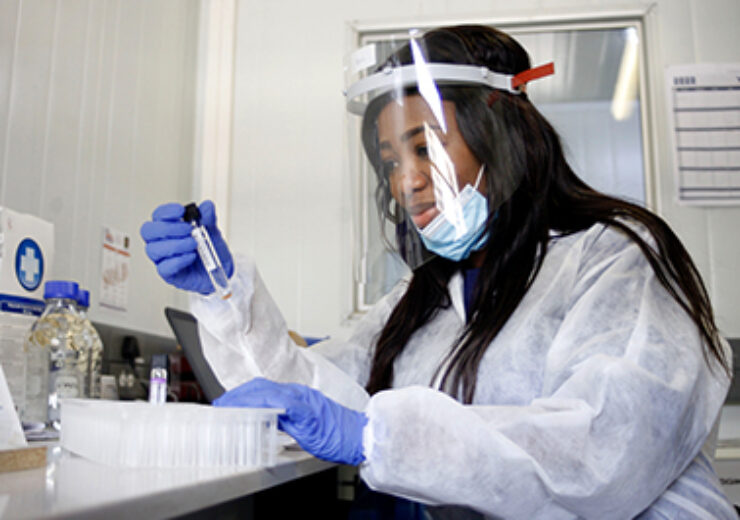The Phase 1 clinical trial in Rwanda and South Africa aims to evaluate mRNA HIV vaccine antigen for safety and immunogenicity and strengthen regional scientific capacity

Lab Technologist Malebo Mahapa processing samples. (Credit: The Aurum Institute.)
Moderna, in partnership with International AIDS Vaccine Initiative (IAVI), is set to commence a Phase 1 clinical trial of an mRNA HIV vaccine antigen (mRNA-1644).
IAVI is a non-profit scientific research organisation that works to advance the development of vaccines to prevent HIV infection and AIDS.
The mRNA therapeutics and vaccines developer is planning to start participant screenings at the Centre for Family Health Research (CFHR) in Kigali, Rwanda, and The Aurum Institute in Tembisa, South Africa.
Sponsored by IAVI, the IAVI G003 study builds on the HIV vaccine research data, including results from the Phase 1 clinical trial, IAVI G001.
In the IAVI G001 trial, vaccination with the HIV immunogen eOD-GT8 60mer as a recombinant protein, in healthy US adults, induced the targeted immune responses in 97% of recipients.
The IAVI G003 trial aims to determine whether vaccination with eOD-GT8 60mer, delivered via Moderna’s mRNA platform, induces similar immune responses in African populations, as seen in IAVI G001.
Moderna CEO Stéphane Bancel said: “With our mRNA technology and IAVI’s discovery and development expertise, we are looking forward to advancing a novel approach to overcome some of the longstanding hurdles to developing a protective HIV vaccine.
“Moderna’s HIV vaccine development programme, together with our portfolio of Covid-19, Zika, and Nipah programmes, advances 4 of the 15 priority vaccine programs we committed to develop by 2025, targeting infectious diseases that threaten global health.”
IAVI G003 is an open-label study, planned to enrol a total of 18 healthy, HIV-negative adult volunteers, who will receive two doses of eOD-GT8 60mer mRNA.
Coupled with Moderna’s mRNA platform, eOD-GT8 60mer contains a portion of the viral sequence, but lacks the ability to cause an HIV infection.
In the study, participants will be monitored for safety for six months after receiving the last dose, and their immune responses will be examined in detail to evaluate whether the targeted responses will be achieved.
The clinical trial is being supported by the US President’s Emergency Plan for AIDS Relief (PEPFAR), the Bill & Melinda Gates Foundation and the Collaboration for AIDS Vaccine Discovery (CAVD) Vaccine Immunology Statistical Centre (VISC).
IAVI president and CEO Mark Feinberg said: “The road to an HIV vaccine has been long and winding. mRNA technology has the potential to accelerate the development of a safe, effective, affordable, and durable HIV vaccine for use throughout the world.
“IAVI G003 harnesses Moderna’s proven mRNA vaccine technology, a novel HIV vaccine approach developed over many years by IAVI and Scripps Research, and more than two decades of collaboration with scientific centres of excellence in sub-Saharan Africa, supported by USAID.”
